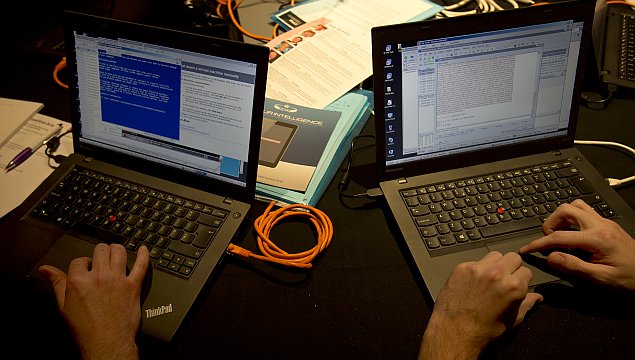- Home
- Internet
- Internet News
- Heartbleed fallout: GE warns customers against 'Internet vulnerabilities'
Heartbleed fallout: GE warns customers against 'Internet vulnerabilities'

"Heartbleed" surfaced in April, when it was disclosed that a pernicious flaw in a widely used Web encryption program known as OpenSSL opened hundreds of thousands of websites to data theft.Developers rushed out patches to fix affected web servers when they disclosed the problem, which affected companies from Amazon.com Inc and Google Inc to Yahoo Inc.
(Also see: Gmail, Facebook, Twitter, Yahoo, others: What passwords to change in Heartbleed aftermath?)
Yet pieces of vulnerable OpenSSL code can be found in several other locations, from email servers to ordinary PCs, phones and even security products, such as firewalls.
Developers of those products are scrambling to figure out whether they are vulnerable and patch them to safeguard users.
The Sydney Morning Herald reported that financial websites run by GE Money, including the Myer Visa Card and Myer Card portals, as well as Coles Mastercard, were vulnerable to the Heartbleed security bug.
Many of the affected websites have since been patched against Heartbleed or are in the process of being patched, the newspaper said.
Myer Visa Card and Coles Master Card online login pages have a security update that navigates to GE Money, which runs those financial websites, asking customers to change passwords.
"We have taken precautions and steps to protect the security of our customers' data and we have no reason to believe any customer data has been compromised," a spokeswoman for GE said in a statement on Tuesday.
Realestate.com.au, a provider of real estate services, also sent customers a note over the weekend saying "Heartbleed" could threaten their accounts and advising them to create new passwords, according to a copy of the email obtained by Reuters.
© Thomson Reuters 2014
For the latest tech news and reviews, follow Gadgets 360 on X, Facebook, WhatsApp, Threads and Google News. For the latest videos on gadgets and tech, subscribe to our YouTube channel. If you want to know everything about top influencers, follow our in-house Who'sThat360 on Instagram and YouTube.
Related Stories
- Samsung Galaxy Unpacked 2025
- ChatGPT
- Redmi Note 14 Pro+
- iPhone 16
- Apple Vision Pro
- Oneplus 12
- OnePlus Nord CE 3 Lite 5G
- iPhone 13
- Xiaomi 14 Pro
- Oppo Find N3
- Tecno Spark Go (2023)
- Realme V30
- Best Phones Under 25000
- Samsung Galaxy S24 Series
- Cryptocurrency
- iQoo 12
- Samsung Galaxy S24 Ultra
- Giottus
- Samsung Galaxy Z Flip 5
- Apple 'Scary Fast'
- Housefull 5
- GoPro Hero 12 Black Review
- Invincible Season 2
- JioGlass
- HD Ready TV
- Laptop Under 50000
- Smartwatch Under 10000
- Latest Mobile Phones
- Compare Phones
- Motorola Edge 60
- Motorola Edge 60 Pro
- Motorola Razr 60
- Motorola Razr 60 Ultra
- Realme 14T 5G
- Redmi Turbo 4 Pro
- Honor X70i
- Red Magic 10 Air
- HP EliteBook 6 G1a
- HP EliteBook 8 G1a
- Honor Pad GT
- Vivo Pad SE
- Honor Band 10
- Vivo Watch 5
- Xiaomi X Pro QLED 2025 (43-Inch)
- Xiaomi X Pro QLED 2025 (55-Inch)
- Asus ROG Ally
- Nintendo Switch Lite
- Toshiba 1.8 Ton 5 Star Inverter Split AC (RAS-24TKCV5G-INZ / RAS-24TACV5G-INZ)
- Toshiba 1.5 Ton 5 Star Inverter Split AC (RAS-18PKCV2G-IN / RAS-18PACV2G-IN)
















